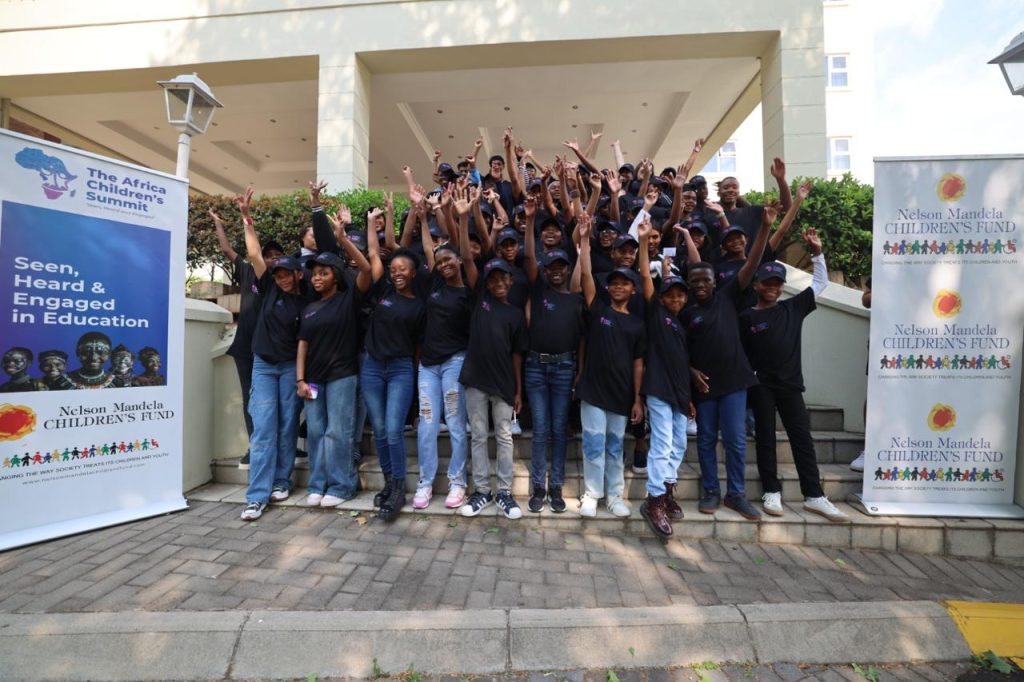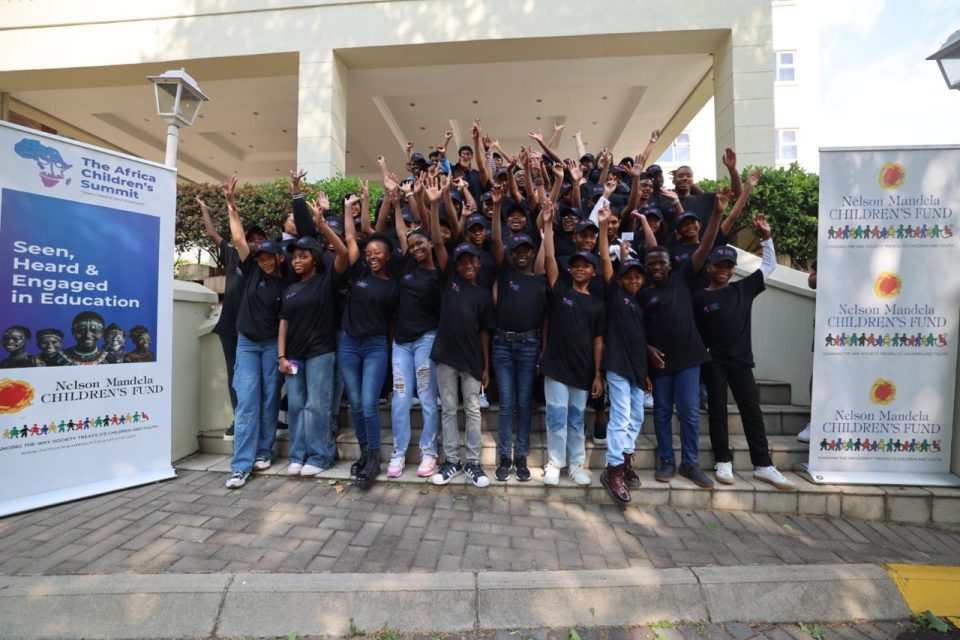
This past weekend, on the 28th and 29th, the Nelson Mandela Children’s Fund (NMCF) hosted over fifty children from various parts of South Africa, to take part in a pre-summit as we look forward to the continental Africa Children’s Summit 2025 (ACS).
During the pre-summit, children participated in and led discussions about topical issues in education including child participation and inclusion, climate change, artificial intelligence (AI), barriers to educational access, and school violence. The ACS will take place from 4 to 7 April 2025 in South Africa.
The pre-summit was possible through the continued support of our partners, Nedbank and South Africa Airways (SAA). Nedbank has been a long-time supporter of the work done by the NMCF. The support has been there since 2005, with the Nedbank Children’s Affinity programme, a platform that allows ordinary citizens to support NMCF’s mission of being a children’s rights advocate.
Through its generosity, SAA allocated flying miles to the children flown from different parts of the country to attend the pre-summit.
The children shared their insights and made recommendations that can assist in achieving an equitable and supportive education environment in South Africa. The discussions covered the following issues:
- Empowering Child Participation in Education
- Promoting Inclusive Education for All Children
- Impact of Climate Change on Educational Systems
- Contemplating the Role of AI in Education: Risks and Opportunities
- Breaking Barriers to Educational Access
- Addressing School Violence and its Impact on Learning
On Empowering Child Participation in Education, the participants spoke out about the urgent need for learners’ voices to be integrated into the decisions made regarding the curriculum, teaching methods, school safety and school policies. They further said that platforms like student councils and leadership programs should continue to be supported to promote a student-centred educational experience.
On Promoting Inclusive Education for All Children, the children called for an end to discrimination based on ability and background by creating school cultures that promote equity and mutual respect between learners, staff and educators. They further called for the physical and social integration of learners living with disabilities, and the adoption of policies that encourage social harmony between students.
On the Impact of Climate Change on Educational Systems, the participants called for integrating climate change education into the curriculum to help learners understand its importance, impact, and solutions. This will certainly empower them on what kind of action they may take in the future. They also suggested that schools and communities initiate projects that reduce litter, pollution and waste, and that school infrastructure be made to be climate-resilient.
With the entire world engrossed in conversations about AI, the children also discussed how the role of AI in education can be contemplated and what the risks and opportunities are. They urged that AI be integrated in teaching and learning as a tool to support creative and critical thinking, and not as a replacement for human oversight. The monitoring of AI and social media was also key to keeping learners safe online.
On the issue of Breaking Barriers to Educational Access, the participants called for the addressing of critical challenges such as child marriage and trafficking that continue to create barriers to education for children. They also said there is a need to stop the marginalisation of vulnerable student groups.
Lastly, on the scourge of school violence and its impact on education, the children held said zero tolerance for any form of violence needs to be prioritised and the bullying in schools addressed. They called for the acknowledgement of the psychological impact of violence on learners at school, and that anti-violence programmes that provide mental health support and bridge divides between students are needed in schools.
Dr Linda Ncube-Nkomo, Chief Executive Officer of the NMCF, said: “We have articulate children who can clearly express their views and take a position on them. This is what we should all encourage. The various topics the children touched on are encouraging as we build up to the ACS 2025, which will further extrapolate on these issues and much more.”
DID YOU KNOW?
The Nelson Mandela Children’s Fund (the Fund) is a development and advocacy agency founded by former president Nelson Mandela in 1995. In line with its vision to Change the Way Society Treats its Children and youth, the Fund’s mission is to give voice and dignity to the African child by building a rights-based movement. The organisation’s strategic focus areas include child health, which is addressed by Child Safety and Protection, Child Survival Development and Thriving, Sustainable Livelihoods, Youth Leadership, and the Nelson Mandela Children’s Hospital in Parktown, Johannesburg.
INFO SUPPLIED.


